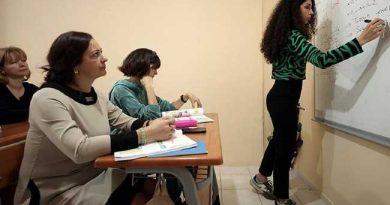Turkey and Russia to Improve Trade Relations
Turkey and Russia will start two-day talks on Tuesday in an intergovernmental council to further improve bilateral relations, with the main focus on trade and business.
The two countries agreed last year to launch a high-level strategic cooperation council, an intergovernmental body that is to be led by Russian President Dmitry Medvedev and Turkish Prime Minister Recep Tayyip Erdoğan.
Erdoğan, accompanied by a number of Cabinet members and a large business delegation, is representing the Turkish side in the High-Level Strategic Council Meeting, due to end today. Erdoğan is also expected to deliver a speech at the Business Forum, attended by 150 Turkish businessmen and many more Russian counterparts. The Turkish Confederation of Businessmen and Industrialists (TUSKON), the largest private business interest group in Turkey, as well as the Foreign Economic Relations Board (DEİK) and the Turkish Exporters’ Union (TİM) also were included in the prime minister’s entourage.
The trade volume between Turkey and Russia increased 15.7 percent last year over 2009, reaching $26.6 billion. Both countries are keen to boost the trade volume to $100 billion within the next five years. The trade volume heavily favors Russia because of the large energy trade going to Turkey that includes natural gas and oil. While Turkish exports to Russia in 2010 jumped 44.7 percent, reaching $4.6 billion on a year-on-year basis, Russian imports to Turkey rose by 11 percent, to $21.5 billion. The trade volume in January 2011, the latest data available, showed exports to Russia jumped 69.3 percent while import grew by 13.9 percent over the same month of a year before. The number of Turkish companies active in Russia is about 2,000 with a total investment of $7 billion.
Cooperation between Turkey and Russia, former Cold War foes, has significantly expanded under Erdoğan’s government, with economic ties driving the engine of deepening ties.
The two sides earlier agreed to eliminate visa requirement for their nationals for trips not exceeding 30 days, a measure expected to please Russians who flock to Turkey’s southern holiday resorts every year. Some 3 million Russian visitors come to Turkey, mostly to Antalya, annually, and the visa exemption is expected to further increase this number. As the visa liberalization is expected to enter into effect soon, the Turkish national budget will be an immediate loser in the short run. It is expected to lose revenue from the visa fees collected from Russian nationals, which stand at about TL 80 million annually. The government expects an increase in the number of tourists to compensate for the drop in visa revenue.
Another sign of the growing ties was a decision to award the construction of Turkey’s first nuclear power plant in the southern province of Mersin to Russian state-controlled company Atomstroyexport. The construction of the nuclear power plant is expected to take seven years, with the preliminary work to begin in weeks. Russia will not just build the plant but also have a controlling stake in a company to be created to operate it.
The two countries are also working on a proposed Samsun-Ceyhan pipeline that would pump Russian oil from Turkey’s Black Sea coast to the Mediterranean. It will run from the Black Sea port of Samsun to the Ceyhan oil terminal in the Mediterranean, where an oil refinery will be set up. The significance of the project is that it is to bypass the Bosporus to alleviate the congested oil tanker traffic through the narrow waterway that bisects İstanbul, where accidents are a concern, as well as the Dardanelles Strait, further south. The Turkish straits are the sole maritime outlet from the Black Sea. Ankara also hopes the pipeline will boost its status as a global hub for energy transportation.
SOURCE: TODAYSZAMAN.COM





